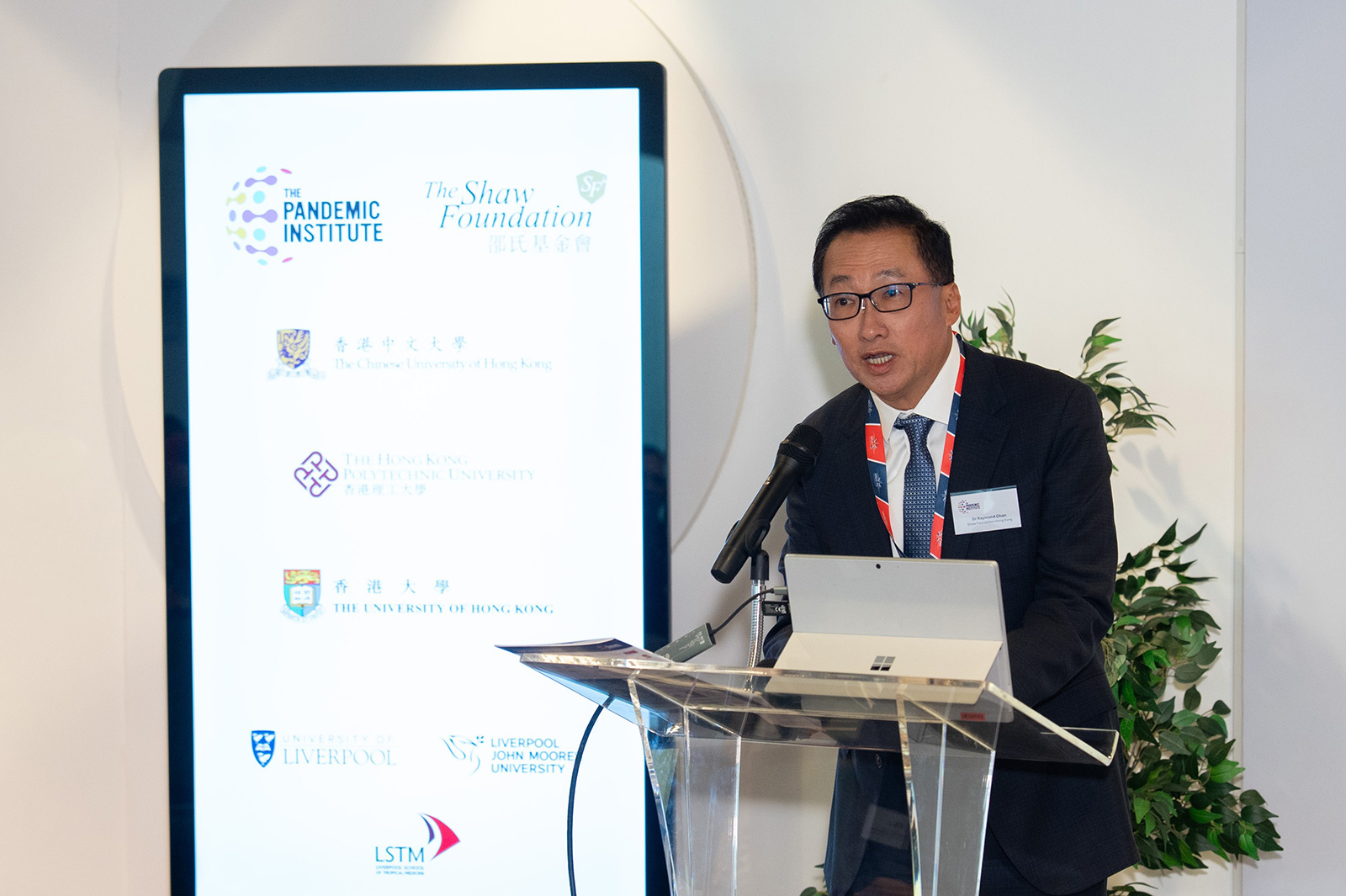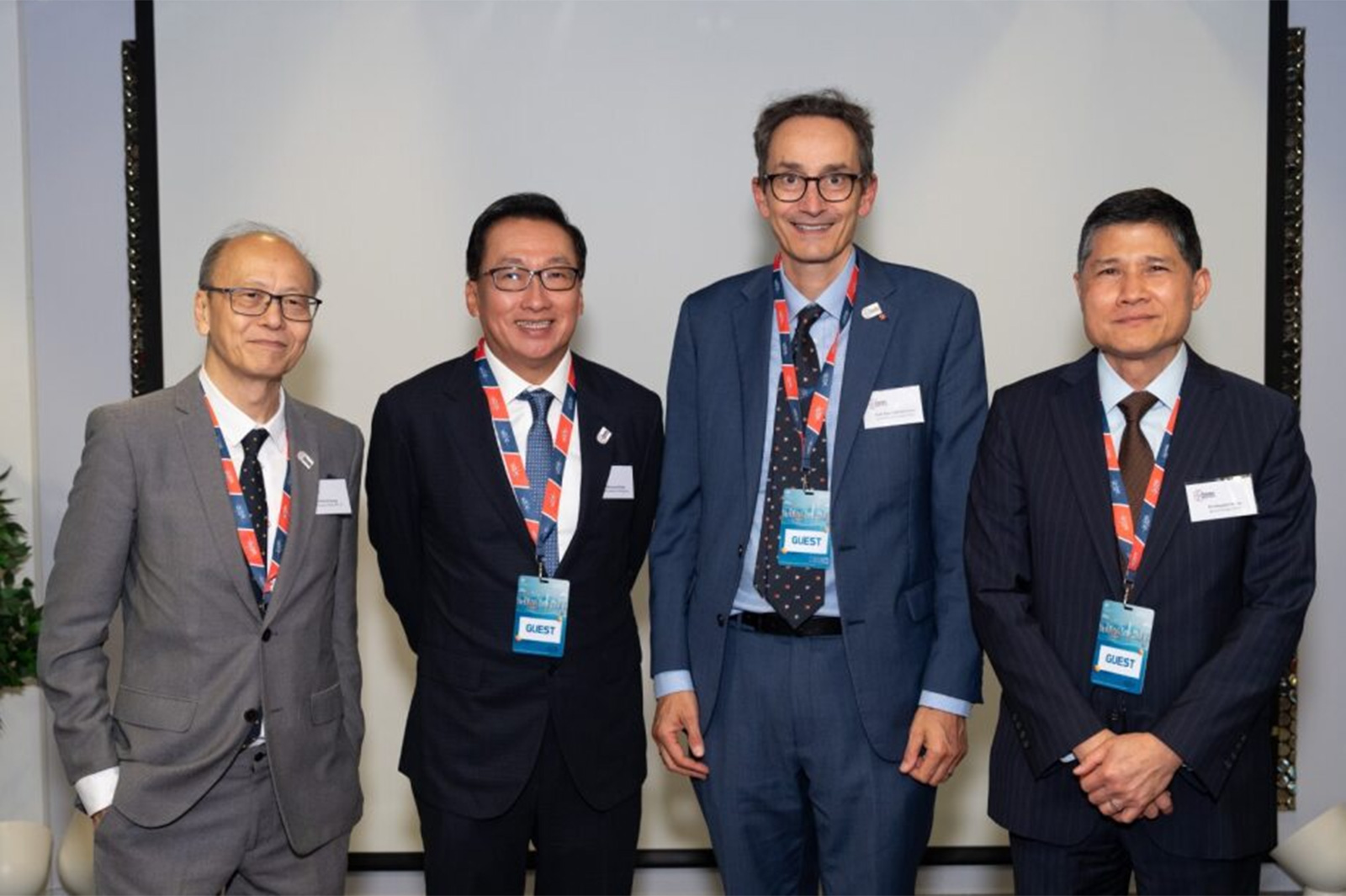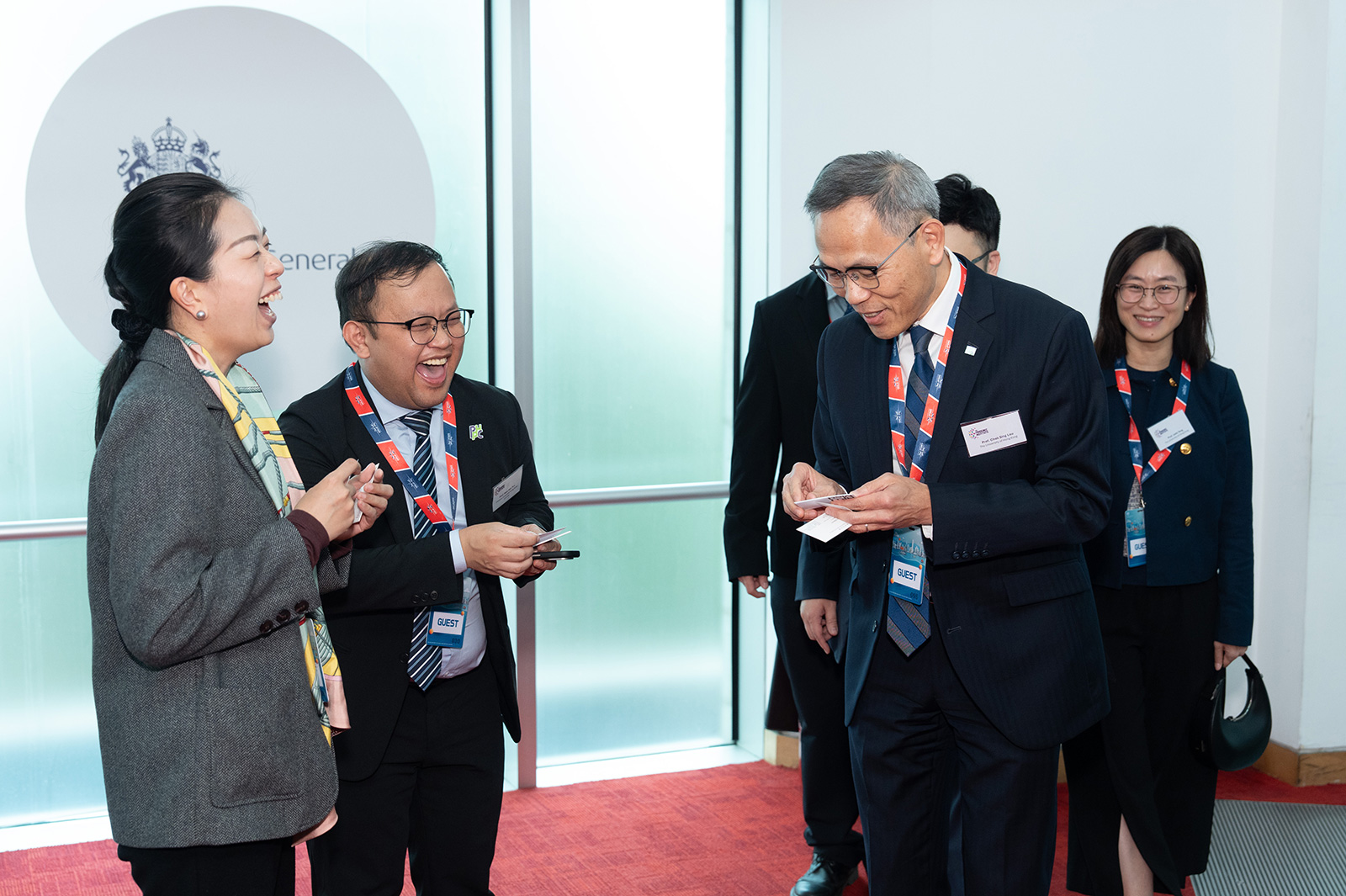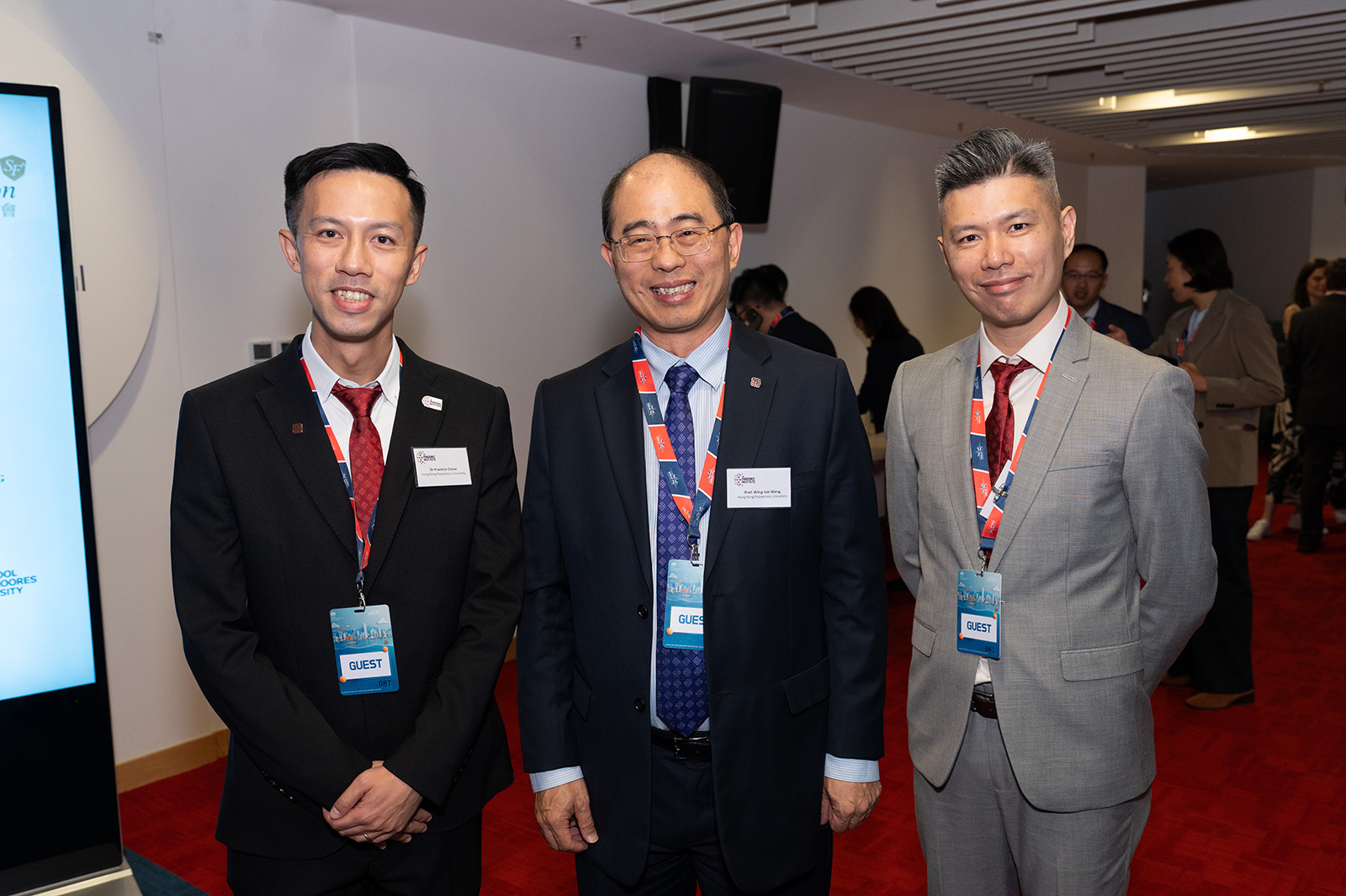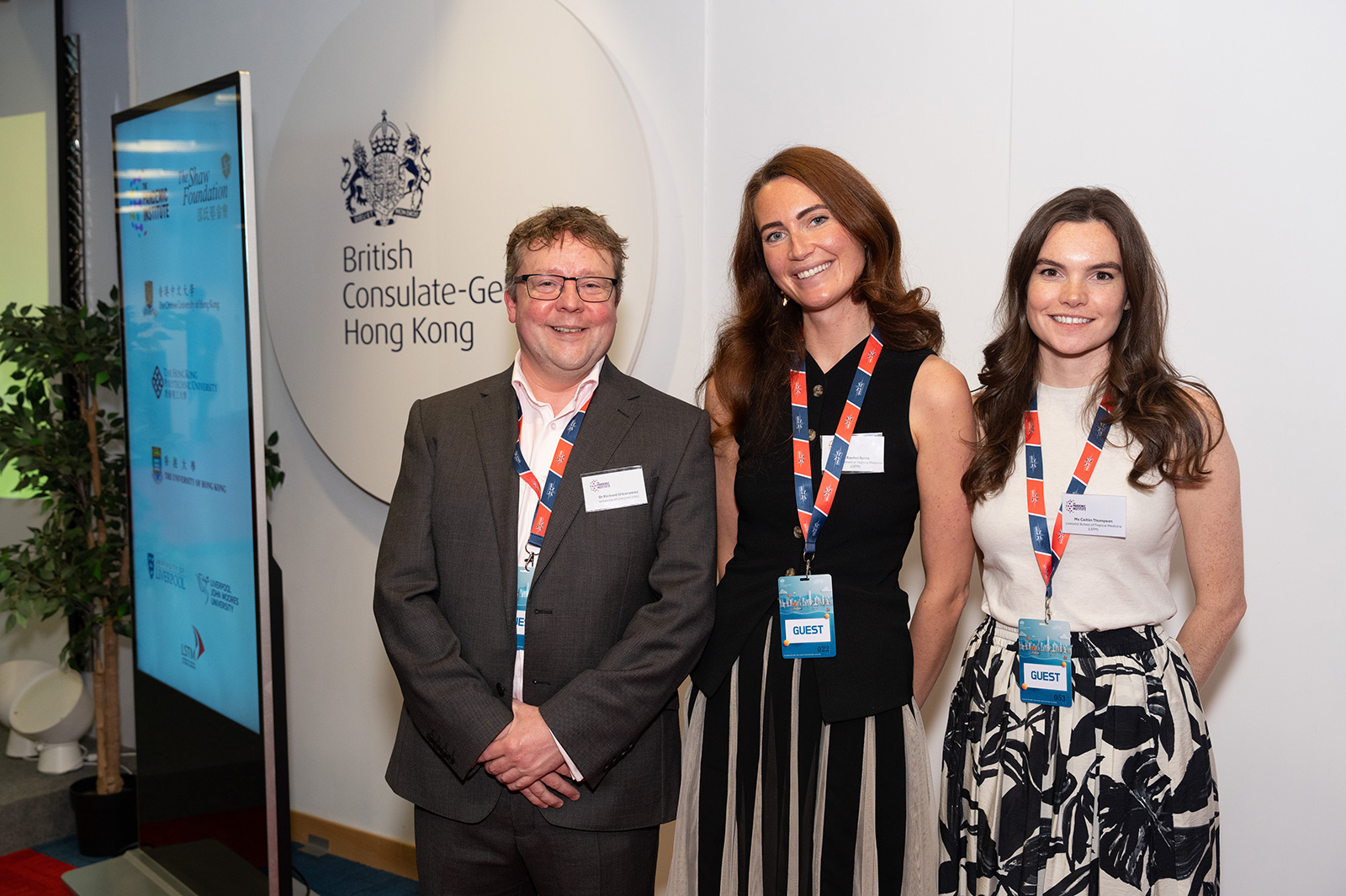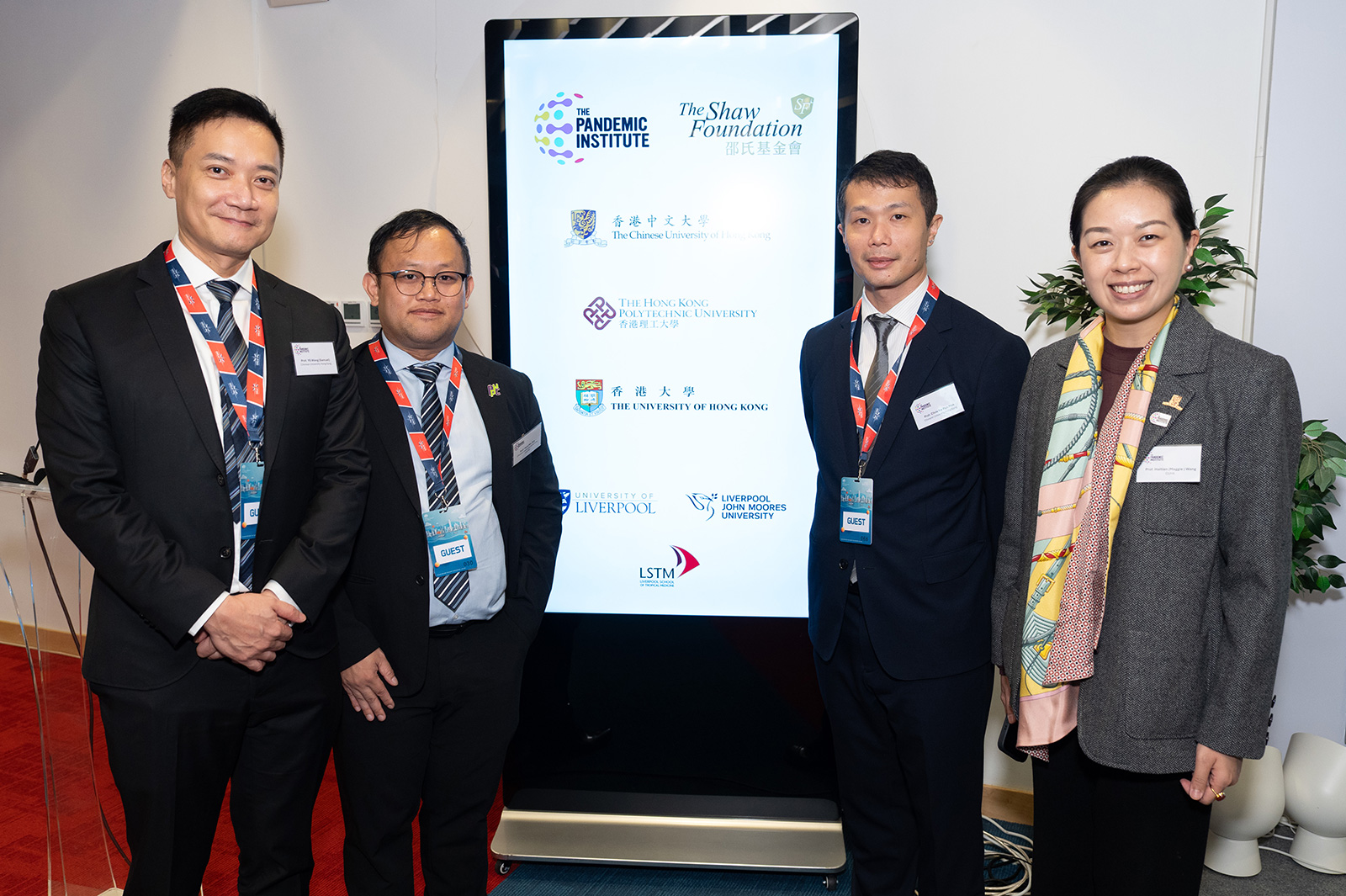

2025.10.30
The Shaw Foundation Promotes International Collaboration to Tackle Infectious Disease and Epidemic Challenges
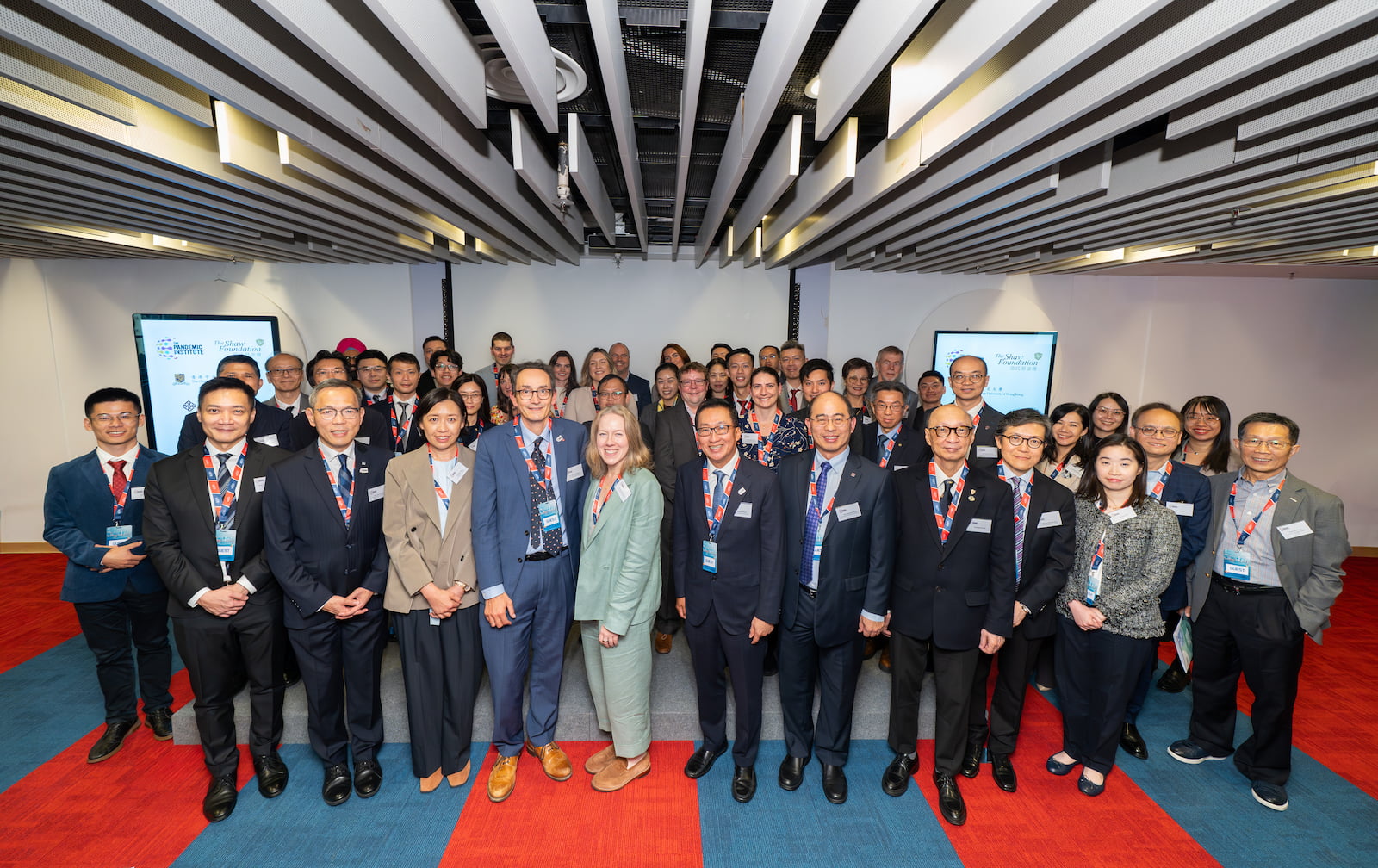
The Shaw Foundation recently announced a commitment of HK$2.5 million (approximately £240,000) to support international research collaboration between three leading Hong Kong universities—The University of Hong Kong (HKU), The Chinese University of Hong Kong (CUHK), and The Hong Kong Polytechnic University (PolyU) and The Pandemic Institute’s (TPI) three UK academic founding partners - the University of Liverpool, the Liverpool School of Tropical Medicine, and Liverpool John Moores University.
The funding will support nine collaborative research projects focusing on a range of high-consequence and emerging infectious threats, including seasonal and pandemic influenza, MERS coronavirus, Ebola, COVID-19, antimicrobial-resistant bacteria, enteroviruses causing brain infections, and hepatitis E.
Dr Raymond Chan, Chairman of The Shaw Foundation said: “We are very pleased to be able to support and launch a new initiative between the world-renowned Liverpool Pandemic Institute and three of our own universities: University of Hong Kong, Chinese University of Hong Kong and the Hong Kong Polytechnic University. During COVID, Hong Kong universities made vital contributions through research and education, playing a key role to combat the disease. As we look ahead to the challenges of future outbreaks, we recognize that international collaboration is more essential than ever. We hope this programme paves the way for more international effort to combat a foe which operates without boundaries."
Professor Tom Solomon, Director of The Pandemic Institute (TPI) and Chair of Neurology at the University of Liverpool said: “This award marks an important step in advancing international cooperation to better understand and respond to infectious disease threats and we are hugely grateful for this generous award from The Shaw Foundation. This funding will enable us to address key viral and bacterial hazards with epidemic or pandemic potential. Our teams are applying complementary scientific and technological approaches - including artificial intelligence and machine learning, novel diagnostics, therapeutic innovation, epidemiological modelling, genomic analysis, and disease mechanism studies - to strengthen preparedness and response capacity worldwide.”
The official launch event was held at the British Consulate, and was attended by local dignitaries, Hong Kong based University of Liverpool alumni, along with the Principal Investigators from each participating institution. As well as the launch event, attendees took part in a two-day scientific programme, during which cross-institutional teams met to work on their collaborative projects. The sessions were held at Hong Kong Polytechnic University and the University of Hong Kong and concluded with a cultural excursion designed to foster team building and strengthen collaborative ties.
Funded projects:
Discovery of Synergistic Anti-Influenza Drug Combinations via Machine Learning
Influenza continues to pose one of the greatest pandemic threats, and current treatments are limited. This project is using artificial intelligence to quickly identify combinations of existing drugs that could work better together against the virus.
UK Principal Investigator: Professor Saye Khoo, University of Liverpool
HK Principal Investigator: Professor Shuofeng Yuan, University of Hong Kong
Leveraging Antibody Discoveries for the Development of MERS-CoV Rapid Diagnostics
MERS coronavirus is a high-risk virus with a high death rate and ongoing outbreaks in the Middle East. At present, there is no rapid test available. This project is testing specially designed antibodies to see which work best in a simple “pregnancy-style” lateral flow test for MERS.
UK Principal Investigator: Dr Caitlin Thompson, Liverpool School of Tropical Medicine
HK Principal Investigator: Professor Hin Chu, University of Hong Kong
Epidemiological Surveillance and Public Health Risk Assessment of Food-Mediated Antimicrobial Resistance (AMR)
Antimicrobial resistance (AMR) is a growing public health concern, with multi-drug resistance bacteria spreading not only within hospitals but also through animals, the environment and the food chain. This project aims to create the first integrated database and risk assessment by linking data from food, wastewater, and clinical settings. By adapting One Health approach, the project will provide a comprehensive understanding of how drug resistant bacteria move through the communities. The goal is to inform and support public health policies in combating AMR.
UK Principal Investigator: Dr Edward Hill, University of Liverpool
HK Principal Investigator: Professor Gilman Siu, Hong Kong Polytechnic University
Advanced Small RNA Therapeutics for Influenza A Virus Brain Injury
Severe influenza A infections can lead to life-threatening brain complications, yet effective treatments remain scarce due to the challenges of crossing the blood brain barrier (BBB). Current therapeutic options for targeting the brain infections caused by influenza A virus are very limited. This project explores an innovative approach by using small RNA molecules encapsulated within extracellular vesicles which are designed to cross the BBB efficiently. The therapeutic strategy aims to reduce brain inflammation while simultaneously managing viral replication within the brain. To evaluate this therapeutic strategy, the project will utilize a cutting-edge BBB neurochip model, enabling precise simulation of the human BBB environment. This advanced model will help optimize the delivery and efficacy of the treatment, paving the way for a novel solution to combat Influenza A-induced brain injury.
UK Principal Investigator: Dr Cordelia Dunai, University of Liverpool
HK Principal Investigator: Dr Keith C.L. Lee & Dr. Franklin W. N. Chow, Hong Kong Polytechnic University
Using AI to Predict the Evolution of High-Consequence Viral Threat Agents
One of the biggest challenges in pandemics is how quickly viruses evolve - often outpacing vaccines and treatments. This project is developing artificial intelligence tools that can “look ahead” to predict how a virus is likely to change.
UK Principal Investigator: Professor Julian Hiscox, University of Liverpool
HK Principal Investigator: Professor Maggie Wang, Chinese University of Hong Kong
Investigating the Genomic Variations of Carbapenemase-Producing Enterobacteriaceae (CPE) from Clinical Settings
Antimicrobial resistance is a growing global crisis, and carbapenem-resistant Enterobacteriaceae (CPE) are among the most dangerous, often resistant to last-line antibiotics. In Hong Kong, CPE infections have risen sharply in recent years, mirroring a global trend. This project will collect resistant bacteria from hospitals in Hong Kong and Liverpool, sequence their genomes, and study how resistance genes spread, transfer and evolve. By analysing the genomic variations and mechanisms of antibiotic resistance, the project aims to identify critical genetic drivers of antimicrobial resistance. The findings will provide essential insights to inform infection control strategies, improve surveillance system and guide the development of new treatments to combat CPE infections.
UK Principal Investigator: Dr Ismini Nakouti, Liverpool John Moores University
HK Principal Investigator: Dr Qing Xiong, Hong Kong Polytechnic University
Studying Enteroviral Neuroinvasion Mechanisms Using In Vitro Blood–Brain Barrier Models
Enteroviruses can invade the brain and cause serious illnesses such as meningitis, paralysis, and even fatal complications, yet we still don’t fully understand how they cross the brain’s protective barrier. This project will use advanced “organ-on-chip” models of the blood–brain barrier to mimic how viruses interact with brain cells.
UK Principal Investigator: Dr Claire Hetherington, University of Liverpool
HK Principal Investigator: Professor Man Lung Yeung, University of Hong Kong
Monoclonal Antibody Toolkit for Hepatitis E Virus (HEV)
Hepatitis E is a major cause of liver disease worldwide. A new rat-derived strain has crossed into humans, with outbreaks in Hong Kong and beyond, but current diagnostic tests cannot reliably detect it. This project will generate a toolkit of monoclonal antibodies that can detect both human and rat hepatitis E viruses.
UK Principal Investigator: Dr Richard Urbanowicz, Liverpool School of Tropical Medicine
HK Principal Investigator: Dr Siddharth Sridhar, University of Hong Kong
Saliva Testing for Emerging Pathogens: Gaps, Opportunities and Evaluation for Use
During outbreaks, traditional swabs can be invasive, uncomfortable, and difficult to scale. Saliva offers a simple, non-invasive alternative for diagnosing infections, but its potential is underused. This project will explore how saliva could be used to test for high-risk pathogens.
UK Principal Investigator: Dr Bhagteshwar Singh, University of Liverpool
HK Principal Investigator: Professor Kelvin To, University of Hong Kong
About The Shaw Foundation
The Shaw Foundation Hong Kong was established in 1973 by the legendary film mogul Sir Run Run Shaw. Carrying on his legacy and philanthropic wishes, we are dedicated to the betterment of society and empowerment of individuals under the three pillars of “Education”, “Relief of Hardship” and “Benefits for Hong Kong Community”. The Foundation supports a wide range of causes, including education, healthcare, scientific research, arts and culture, emergency relief, and community support.
About The Pandemic Institute
Established in 2021, The Pandemic Institute is a unique collaboration of academic, health and civic partners in Liverpool with a global mission to tackle emerging infections and pandemic threats. Launched with an initial philanthropic donation of £10m in 2021, The Pandemic Institute has established over £5M in industry partnerships, invested over £3.6M in critical pandemic research and infrastructure, and through our partner organisations our investigators hold research portfolios totalling £62M.
